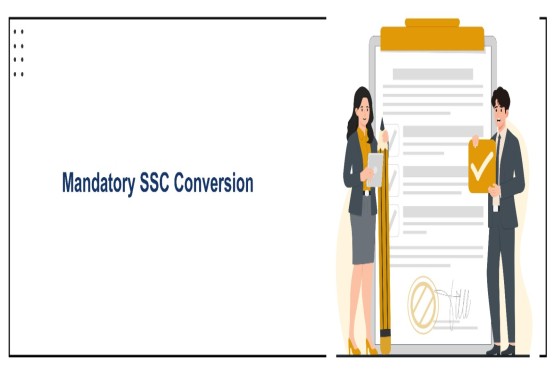The Delhi High Court’s decision in Karim Hotels Pvt. Ltd. v. Mohammad Talha (Gulshan-e-Karim) is an important example of fairness and balance in trademark law. The Court allowed a small restaurant from Moradabad, Gulshan-e-Karim, to continue using its name even though it was similar to the well-known Karim’s restaurant in Delhi but only if it clearly mentioned that it had no connection with the Delhi brand.
This judgment is special because it protects both the rights of a famous trademark owner and the livelihood of a small business. It highlights the principles of innocent infringement, good faith, and proportionate remedy under Indian trademark law.
Background of the Case
-
Plaintiff: Karim Hotels Pvt. Ltd. the owner of Karim’s, a legendary restaurant in Delhi’s Jama Masjid area, operating since 1913.
-
Defendant: Mohammad Talha, who runs a restaurant in Moradabad under the name “Gulshan-e-Karim.”
Both restaurants serve Mughlai cuisine, which made the plaintiff believe that customers might get confused and assume the Moradabad outlet was part of the same chain.
Karim’s (Delhi) filed a trademark infringement and passing off case under the Trademarks Act, 1999, claiming that “Karim” was a distinctive and well-known mark associated with their brand.
The defendant said he never intended to copy the famous restaurant and that the name Gulshan-e-Karim was used in good faith and chosen for personal reasons.
Law Involved
The dispute mainly involved the following sections of the Trademarks Act, 1999:
-
Section 2(zb): Defines what a “trademark” is any mark that can distinguish the goods or services of one person from another.
-
Section 29: Explains what amounts to trademark infringement when a mark identical or deceptively similar to a registered mark is used without authorization, likely to cause confusion.
-
Section 30(1): Provides limits to trademark rights certain uses may not amount to infringement if they are in good faith or describe characteristics of goods/services.
-
Section 35: Protects honest use of a person’s own name or address, provided it is done in good faith.
The Court referred to these sections while deciding whether the defendant’s use of “Karim” was malicious or innocent.
Proceedings Before the Lower Court
The Commercial Court at Tis Hazari first heard the case and sided with the Delhi restaurant. It granted an injunction (a restraining order) stopping the Moradabad restaurant from using “Karim” in its name. This order caused financial and reputational difficulties for the small restaurant, which had already spent money on menus, boards, and advertisements. So, the defendant appealed to the Delhi High Court.
Delhi High Court’s Decision
A Division Bench of Justice C. Hari Shankar and Justice Ajay Digpaul examined the case carefully. The judges agreed that the two names Karim’s and Gulshan-e-Karim were phonetically and visually similar. However, they found that the Moradabad restaurant had no dishonest intention. The Court said this was an example of innocent infringement, where the use of a similar name happens without bad faith.
So instead of a complete ban, the Court gave a balanced order:
-
The restaurant could continue using “Gulshan-e-Karim.”
-
It must display a clear disclaimer everywhere stating:
“This restaurant has no connection or association with the Delhi-based Karim’s restaurant chain.”
This disclaimer must appear on all signboards, menus, packaging, advertisements, websites, and delivery platforms.
Concept of Innocent Infringement
Under Section 29, using a similar mark can be called infringement. But Sections 30 and 35 make it clear that good faith use is not infringement. The Delhi High Court found that Gulshan-e-Karim did not intend to mislead customers or exploit the goodwill of Karim’s. The adoption of the name was innocent, not dishonest. Therefore, the Court said a full ban would be too harsh and unfair. Instead, it focused on preventing consumer confusion through disclaimers.
Importance of the Disclaimer
The disclaimer acted as a middle path to resolve the dispute fairly. It achieved three things:
-
Protected consumers by informing them that the two restaurants are not connected.
-
Protected the Delhi brand’s reputation by removing any possible misunderstanding.
-
Protected the small business by allowing it to continue operating under certain conditions.
This idea reflects the global approach where transparency is often used to solve disputes instead of harsh penalties.
Similar Indian Case Laws
The Delhi High Court’s decision in the Karim’s vs. Gulshan-e-Karim case follows a common pattern in Indian trademark law courts focus not only on brand rights but also on intent, honesty, and fairness. Some earlier judgments show how Indian courts balance these ideas:
Cadila Health Care Ltd. v. Cadila Pharmaceuticals Ltd.
Date of Judgment: 26 March 2001
In this famous Supreme Court case, both companies were using the name “Cadila” for their medicines. The Court said that just having similar names isn’t enough to prove trademark infringement. What really matters is whether consumers are likely to get confused. The Court also said that the intention of the user and the type of goods must be considered. If someone uses a similar mark honestly and without bad intent, it may not count as infringement.
Info Edge (India) Ltd. v. Shailesh Gupta
Date of Judgment: 23 January 2002
The Delhi High Court ruled that if a person did not act with bad intention, then harsh punishments or total bans aren’t needed. The Court can instead allow limited use of the mark with clear differences so that people don’t get confused. This shows that Indian courts try to protect honest small businesses and don’t punish genuine mistakes too severely.
DHL International GmbH v. DLH Express Services Pvt. Ltd.
Date of Judgment: 17 February 2009
This is an example of intentional copying. The defendant tried to benefit from DHL’s well-known brand by using a very similar name. The Delhi High Court gave a permanent ban (injunction) against the infringer. This shows that while courts are fair to honest users, they act strictly against dishonest or deliberate copying.
Marico Ltd. v. Abhijeet Bhansali
Date of Judgment: 13 January 2020
The Bombay High Court discussed proportionality — meaning that remedies in trademark cases should be fair and balanced. The Court said that while big brands deserve protection, the punishment should not destroy fair competition or harm honest businesses. This idea was also applied in the Gulshan-e-Karim case, where the Court allowed continued use of the name with a disclaimer, instead of a total ban.
These cases together show a trend: Indian courts are now focusing more on fairness and intent instead of just strict enforcement.
Trademark Law and Fair Justice
The Karim’s vs. Gulshan-e-Karim case adds to a growing body of law where proportionate justice is central. Trademark law is not only about punishing wrongdoers; it’s also about maintaining balance between brand protection and fair trade.
The judgment shows that:
-
Every dispute is different. Courts must look at the facts and intent behind the use.
-
Trademark rights are not absolute. They must be used responsibly and fairly.
-
Public interest matters. Courts aim to prevent confusion, not to destroy small businesses unnecessarily.
Link to Global Trademark Trends
Many foreign courts also follow the idea of Fairness:
-
The European Court of Justice (ECJ) and UK courts have said that legal actions should not go beyond what is needed to protect the right holder’s interest.
-
The Delhi High Court’s approach in this case is very similar. It shows India’s IP system is developing in line with international best practices protecting both fairness and innovation.
Why This Judgment Is Important
This decision is significant for three reasons:
-
It recognizes honest mistakes. Not every case of similarity is a case of cheating. The law must distinguish between innocent and deliberate acts.
-
It protects both sides. Karim’s keeps its goodwill safe, and Gulshan-e-Karim gets to keep its business with a disclaimer.
-
It sets a positive precedent. Small entrepreneurs now know that courts value good faith and will not always impose the harshest penalties.
Lessons from the Case
-
Good faith matters: If you choose a business name honestly and without trying to copy, courts will consider your intention.
-
Use of common names: Words that are part of culture or language (like “Karim”) cannot easily be monopolized by one business.
-
Balanced approach: Courts prefer practical solutions like disclaimers that protect both reputation and livelihood.
-
Awareness: Small business owners should check trademark availability before naming their ventures to avoid disputes.
Final Word
The Karim’s vs. Gulshan-e-Karim case is a perfect example of how courts can blend law with fairness. The Delhi High Court showed that trademark protection should not be used as a weapon to crush small players who act in good faith. By allowing Gulshan-e-Karim to keep its name with a clear disclaimer, the Court protected both the rights of the famous Delhi restaurant and the livelihood of the Moradabad owner.
This decision shows three big lessons:
-
Good faith matters more than strict rules.
-
Remedies should be balanced, not harsh.
-
Clarity for consumers is more important than monopoly over names.
The ruling will likely guide future courts in India when deciding similar disputes. It shows a modern, thoughtful approach to trademark law one that supports fairness, honesty, and coexistence in the business world.
References
-
Karim Hotels Pvt. Ltd. v. Mohammad Talha, Delhi High Court, 2025 (Justices C. Hari Shankar & Ajay Digpaul)
-
Trademarks Act, 1999 — Sections 2(zb), 29, 30, and 35
-
Cadila Health Care Ltd. v. Cadila Pharmaceuticals Ltd., (2001) 5 SCC 73
-
Info Edge (India) Ltd. v. Shailesh Gupta, 2002 SCC OnLine Del 31
-
DHL International GmbH v. DLH Express Services Pvt. Ltd., 2009 SCC OnLine Del 321
-
Marico Ltd. v. Abhijeet Bhansali, 2020 SCC OnLine Bom 2
FAQs
Q1. What was the main issue in the Karim’s vs. Gulshan-e-Karim case?
Ans. The dispute centered on whether the Moradabad restaurant “Gulshan-e-Karim” infringed the trademark of the famous Delhi-based “Karim’s” restaurant.
Q2. Why did the Delhi High Court allow the defendant to use the name “Gulshan-e-Karim”?
Ans. Because the Court found the use to be in good faith with no dishonest intent. The defendant did not try to exploit the goodwill of the Delhi restaurant.
Q3. What condition did the Court impose on the defendant?
Ans. The restaurant must display a clear disclaimer on all materials stating that it has no connection with the Delhi-based Karim’s.
Q4. What legal principles did the Court apply?
Ans. The Court applied Sections 29, 30, and 35 of the Trademarks Act, 1999, emphasizing innocent infringement, good faith use, and proportionate remedies.
Q5.How does this case promote fairness in trademark law?
Ans. It protects the rights of a famous brand while also safeguarding the livelihood of a small, honest business showing a balanced approach to justice.
Q6. What lesson does this case offer small entrepreneurs?
Ans. They should choose names carefully and check for existing trademarks, but if their intent is honest, courts may grant relief rather than impose harsh penalties.
Q7. How does this decision align with global practices?
Ans. The judgment follows international trends emphasizing fairness, transparency, and proportional remedies in intellectual property law.











































































_crop10_thumb.jpg)


































































_crop10_thumb.jpg)
_crop10_thumb.jpg)



_crop10_thumb.jpg)


_crop10_thumb.jpg)





_crop10_thumb.jpg)

_crop10_thumb.jpg)














-suratgujarat-section-158_crop10_thumb.jpg)
-suratgujarat_crop10_thumb.jpg)
-(33)_crop10_thumb.jpg)



-ahmedabad_crop10_thumb.jpg)
-learn_crop10_thumb.jpg)

-learnn_crop10_thumb.jpg)



























































_crop10_thumb.jpg)























_Guidelines_learn_crop10_thumb.jpg)























_learn_crop10_thumb.jpg)
_crop10_thumb.jpeg)










_crop10_thumb.jpg)




_Second_Amendment_Rules,_2025_learn_crop10_thumb.jpg)







_learn_crop10_thumb.jpg)












































_learn_crop10_thumb.jpeg)























_learn_crop10_thumb.jpg)



_rd_roc_learn_crop10_thumb.jpg)
















_learn_crop10_thumb.jpg)














_learn_crop10_thumb.jpg)
_Learn_crop10_thumb.jpg)










































_learn_crop10_thumb.jpg)




_learn_crop10_thumb.jpg)













_crop10_thumb.jpeg)


















